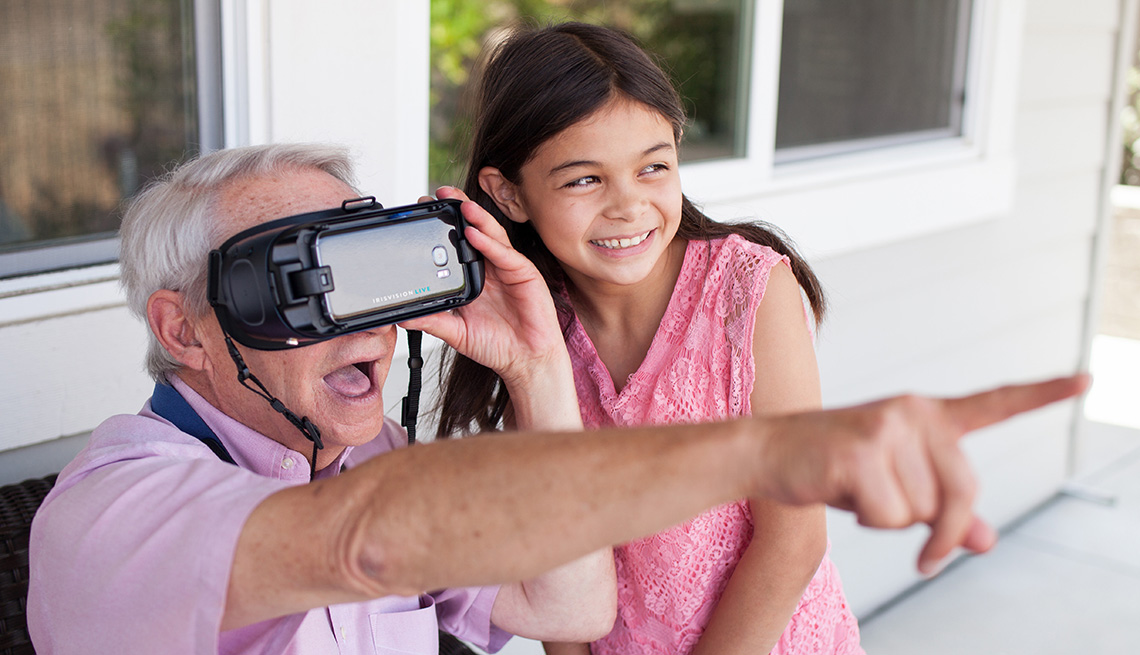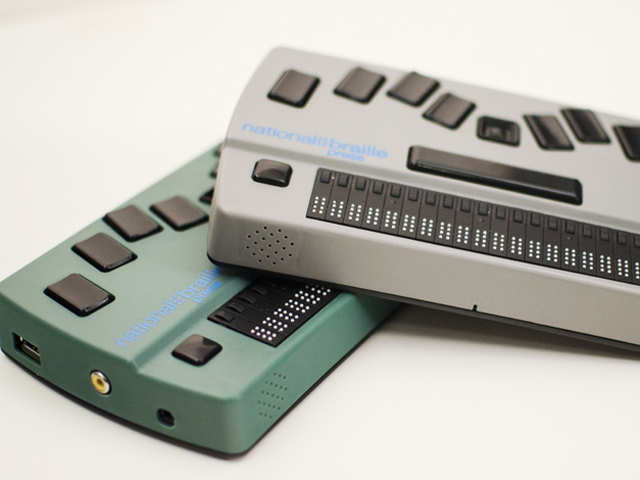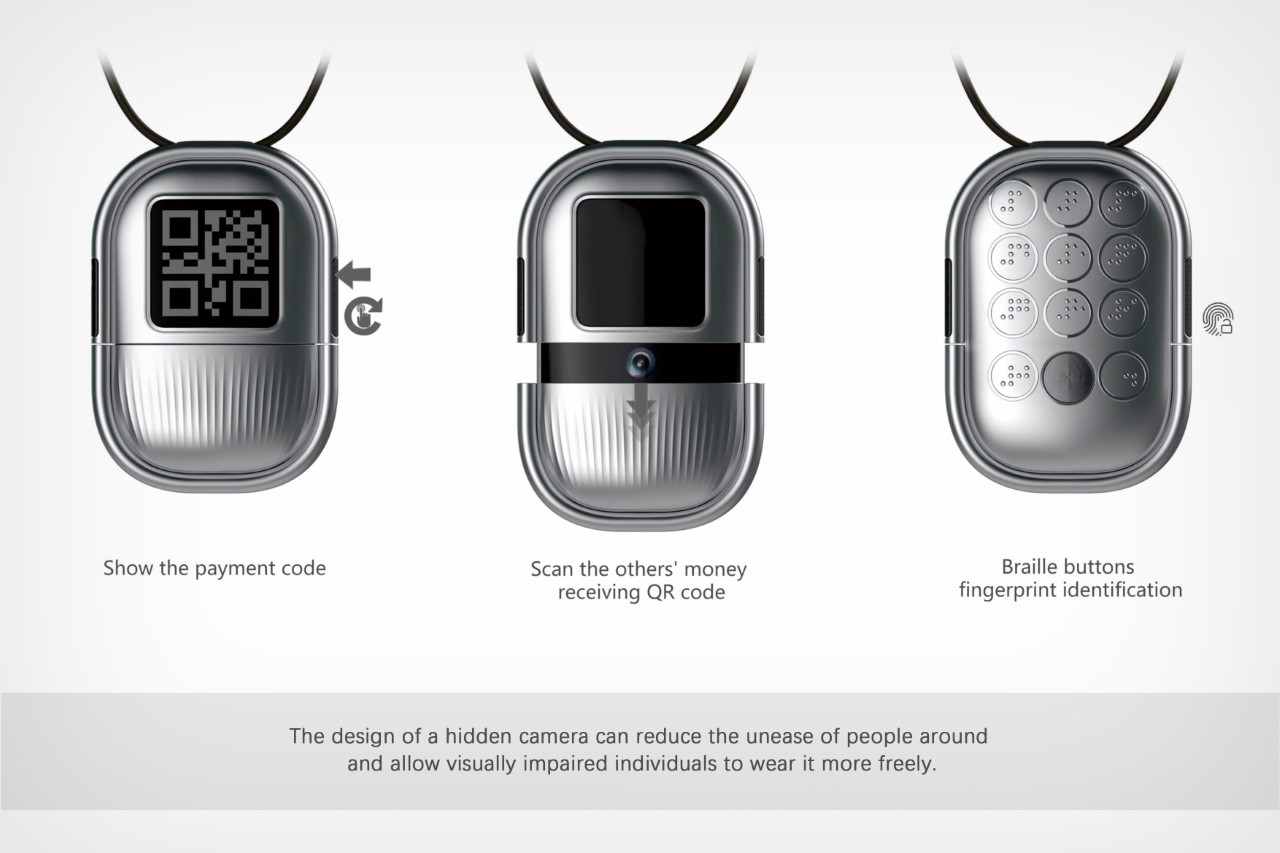Voice-Activated Assistive Devices: Enabling the Visually Impaired
Voice-Activated Assistive Devices: Enabling the Visually Impaired
Blog Article
Empowering Independence With Assistive Technology for the Blind
The assimilation of assistive technology right into the lives of individuals with aesthetic problems represents a substantial innovation in advertising self-reliance and self-sufficiency. From cutting-edge screen viewers to innovative smart walking sticks, these devices not only boost day-to-day navigating and communication yet likewise equip individuals to involve meaningfully in different aspects of life. As we check out the myriad benefits and real-world applications of these technologies, it comes to be vital to analyze the underlying variables that contribute to their performance and the capacity for future growths in this essential field.
Review of Assistive Innovation

The advancement of assistive technology is based in principles of inclusivity and empowerment. Advancements in software program, equipment, and sensory enhancements give individuals with alternatives tailored to their specific requirements. From display readers that convert message to speech, to tactile tools that convey info with touch, these tools transform the means individuals engage with their surroundings.
Along with useful applications, assistive modern technology cultivates higher social incorporation and engagement in different industries, including education and employment (Wearable technology for low vision). As r & d proceed to advance, the possibility for assistive modern technology to better enhance the lives of visually damaged people remains promising, paving the way for a much more fair culture where every person can thrive
Kinds Of Assistive Instruments
A selection of assistive tools have actually arised to support individuals with visual impairments, each developed to fulfill particular needs and improve everyday functioning. These devices range from low-tech services to state-of-the-art developments, providing diverse alternatives for customers.
Low-tech gadgets include magnifiers and large-print materials that aid in analysis and writing. Braille devices, such as Braille styluses and slates, allow tactile reading and interaction. Alignment and flexibility help, like white walking canes, assist individuals navigate their environment securely.
On the higher end of the spectrum, digital magnifying systems and screen readers supply substantial assistance. Electronic magnifiers allow customers to expand text and images on displays, while screen viewers transform digital content right into synthesized speech, assisting in access to information on smartphones and computer systems.
Smart device applications also play a vital duty, providing attributes like text acknowledgment and navigating aid. Wearable technology, such as wise glasses equipped with increased truth, is emerging as an appealing tool to boost situational understanding.
Benefits of Assistive Innovation
The combination of assistive technology dramatically improves the quality of life for people with aesthetic impairments. These technologies equip customers by promoting independence, allowing them to navigate their atmospheres more effectively and perform everyday jobs with greater simplicity. Screen readers and zoom software program allow individuals to accessibility electronic information, cultivating instructional and specialist possibilities that might have formerly been out of reach.
Additionally, assistive gadgets such as wise walking canes and GPS applications offer real-time navigation help, enhancing flexibility and safety and security. This increased autonomy not just improves self-esteem but also encourages social involvement, allowing users to participate more fully in their communities.
Assistive innovation also helps with communication, helping users link with others with voice recognition and text-to-speech applications. This capability is vital for maintaining connections and accessing essential information.
Furthermore, the personalization choices available with lots of assistive innovations make sure that individuals can tailor devices to their details needs, better boosting functionality and effectiveness. Generally, the advantages of assistive innovation for individuals with aesthetic disabilities are extensive, advertising a much more inclusive culture you could try these out where everybody can pursue their objectives and desires.
Instance Research Studies and Success Stories
Highlighting the transformative effect of assistive innovation, many instance studies show just how individuals with aesthetic impairments have effectively incorporated these devices right into their day-to-day lives. One compelling example involves a college trainee that made use of display reading software to navigate academic materials and on the internet sources effectively. This innovation not just facilitated her education however likewise enhanced her self-confidence in getting involved in conversations and team tasks.
An additional study features a professional who utilizes a smart device application designed for navigation and item acknowledgment. By utilizing this application, he has actually gained back freedom in both his personal and workplace, allowing him to commute independently and engage with coworkers extra properly.
Additionally, a retired person shared her experience with braille e-readers, which allowed her to access a large array of literary works and remain attached with her area via publication clubs.
These success tales highlight the important function of assistive modern technology in cultivating self-reliance, improving lifestyle, and advertising social integration for people with visual impairments (OCR devices for the blind). By welcoming these innovative devices, individuals can conquer obstacles and seize chances that add to their individual and expert gratification

Future Trends in Assistive Technology
Innovation in assistive technology is positioned to redefine the landscape of assistance for people with visual impairments. Emerging fads stress the assimilation of fabricated knowledge (AI) and maker discovering, which boost the capability of tools that help with navigation and info ease of access. As an example, AI-driven applications are now efficient in analyzing visual information in real-time, making it possible for individuals to engage with their setting a lot more separately.
Additionally, the growth of wearable technology is progressing rapidly. Smart glasses equipped with increased fact (AR) can offer audio summaries of surroundings, transforming just how users engage with public areas. These gadgets not just advertise autonomy however likewise foster social addition.
In Addition, the Web of Points (IoT) is making homes smarter, enabling seamless connection in between assistive devices and everyday home appliances. This connectivity encourages customers by enabling voice-activated controls and computerized reactions customized to specific requirements.
Conclusion
Finally, assistive innovation plays a crucial duty in empowering people with aesthetic disabilities by boosting their freedom and involvement with their environments. The varied variety of tools and applications available not only assists in navigation and communication but likewise promotes social integration and basics chances for expert and personal growth. As innovations proceed in this area, the capacity for improving the top quality of life for those with aesthetic problems will expand, promoting higher autonomy and empowerment.

Report this page